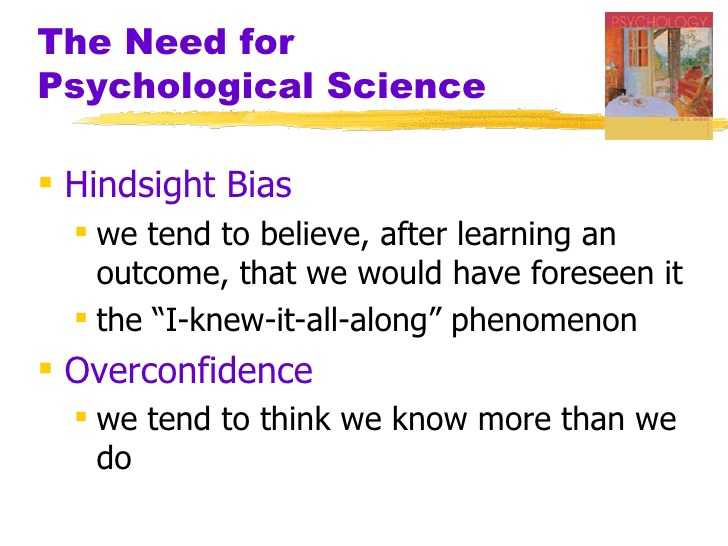HOW PSYCHOLOGY'S THREE MAIN LEVELS OF ANALYSIS WORKS?
Biopsychosocial Approach
Each one of us is a complex system that is part of a larger social system. At the micro-level, we are made up of smaller systems such as the nervous system and body organs, which is made up of still smaller systems such as cells, molecules, and atoms. These tiered systems suggest that different levels of analysis are complementary because everything is related to everything else. All these levels put together are called the biopsychosocial approach.
Biological influences include influences such as the natural selection of adaptive traits, genetic predisposition of responding to the environment, brain mechanism, and hormonal influences.
Psychological influences include learned fears and expectations, emotional responses, cognitive processing, and perceptual interpretations. These two contribute to behavior or mental processes that are expressed in socio-cultural conditions like the presence of others, expectations of family, society, and culture, the influence of friends, other groups, and compelling models such as media. Understanding at each level gives a perspective to human behavior.
Each of these levels gives a unique advantage to look at behavior or mental processes. Yet each by itself is incomplete. Psychologists have a variety of perspectives and ask different questions and have their own limits. For example, let us see how different perspectives understand anger.
A person studying from a neuroscience perspective will focus on brain circuits that cause anger.
The evolutionary perspective will focus on how anger has helped the survival of the organism.
Behavior genetics may study how heredity and experience influence individual differences in temperament.
The psychodynamic perspective may say that it is an expression of unconscious hostility.
A behavioral perspective may try to see which external stimuli trigger anger.
The cognitive perspective will explain how a given situation affects our anger and how anger affects our Thinking.
The socio-cultural perspective will concern itself with how the expression of anger may vary in different socio-cultural conditions.
Biological influences include influences such as the natural selection of adaptive traits, genetic predisposition of responding to the environment, brain mechanism, and hormonal influences.
Psychological influences include learned fears and expectations, emotional responses, cognitive processing, and perceptual interpretations. These two contribute to behavior or mental processes that are expressed in socio-cultural conditions like the presence of others, expectations of family, society, and culture, the influence of friends, other groups, and compelling models such as media. Understanding at each level gives a perspective to human behavior.
Each of these levels gives a unique advantage to look at behavior or mental processes. Yet each by itself is incomplete. Psychologists have a variety of perspectives and ask different questions and have their own limits. For example, let us see how different perspectives understand anger.
A person studying from a neuroscience perspective will focus on brain circuits that cause anger.
The evolutionary perspective will focus on how anger has helped the survival of the organism.
Behavior genetics may study how heredity and experience influence individual differences in temperament.
The psychodynamic perspective may say that it is an expression of unconscious hostility.
A behavioral perspective may try to see which external stimuli trigger anger.
The cognitive perspective will explain how a given situation affects our anger and how anger affects our Thinking.
The socio-cultural perspective will concern itself with how the expression of anger may vary in different socio-cultural conditions.
POST BY




Great job, this is essential information that is shared by you. This information is meaningful and very important for us to increase our knowledge about it. Always keep sharing this type of information. Thanks once again for sharing it. pls visit our website Rehab center in Madera, CA
ReplyDeletenice
ReplyDeleteLearned expectations
ReplyDeleteReports are addressed, and problems are resolved by helping both parties understand one another. To get to know each other better, tasks are assigned such as cooking or painting together. Cincinnati couples therapy
ReplyDeleteThe many methods of observation in psychology are referred to as the Levels of Analysis, or LOA. Biological, cognitive, and social are the three LOAs. Analysis is based on the goals of our research. The depth of analysis in psychology will entirely depend on what the client expects from the psychologist. The psychologist's job is to determine what will benefit the client the most.
ReplyDeleteIt's fascinating to see how each level offers a unique perspective, yet they all work together to provide a comprehensive view of the mind. Thank you for breaking it down so clearly!
ReplyDeletenice
ReplyDeletePsychology's different levels of analysis help us understand human behavior from multiple perspectives. Great explanation—thank you!
ReplyDelete